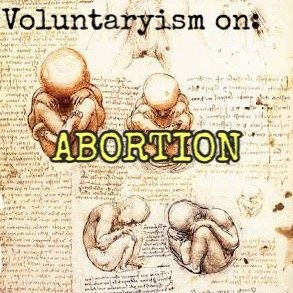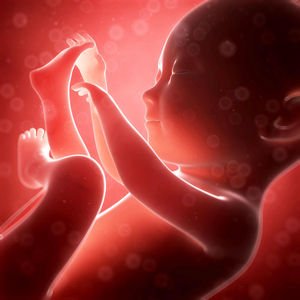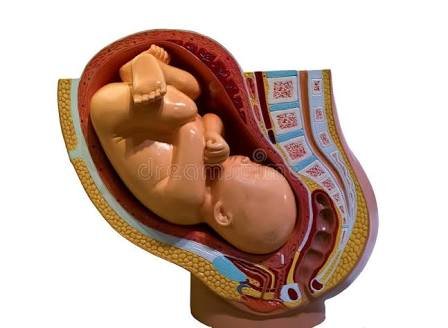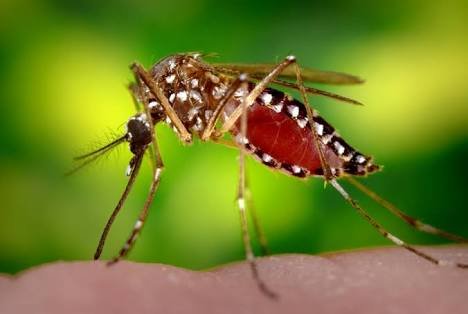The Voluntaryist Position On Abortion (Are Children In Utero Self-Owners?)

AnCap blasphemy: “I disagree with Rothbard.”
What the mother is doing in an abortion is causing an unwanted entity within her body to be ejected from it: If the fetus dies, this does not rebut the point that no being has a right to live, unbidden, as a parasite within or upon some person’s body.
~ Murray Rothbard For a New Liberty
I’m aware that it is often construed as a sort of Voluntaryist “sin” to disagree with the likes of Rothbard, but I have to, here.
While I applaud Mr. Rothbard’s many amazing contributions to individualist anarchist (Voluntaryist) thought, his “eviction argument” regarding the right of the mother to “eject” the developing human inside of her, seems fatally flawed to me.
Here’s why:
First, it is my position that humans, including those still in the uterus, are self-owners. Where and when this self-ownership begins may be up for debate (I’ll clarify my position presently), by what is not up for debate is that newborn babies possess the most direct objective link to themselves, even in their state of dependency. In other words, they are self-owners, and as such to kill one of these self-owners can never be justified as an act of “self-defense” against a violation or aggressor.
Second, to call an unborn child a “parasite” is misleading at best, and a pretty inhumane and awful stretch at worst. The term “parasite” both biologically and classically connotes a foreign organism (non-same-species) which benefits from a host in a detrimental, one-sided exchange. To refer to a non-foreign, unborn child as a “parasite” ignores not only the fact that the child is native to the mother’s body, but also that the mother benefits in many ways biologically from the presence of the little one on board. Comparing the natural result of the human reproductive process (a developing human) with something like an actual parasite is intellectually dishonest.

DEFINITIONS:
SELF-OWNERSHIP - Self-ownership (also known as sovereignty of the individual, individual sovereignty or individual autonomy) is the concept of property in one's own person, expressed as the moral or natural right of a person to have bodily integrity and be the exclusive controller of one's own body and life.
PARASITE - An organism that lives in or on an organism of another species (its host) and benefits by deriving nutrients at the other's expense.

The only thing standing between this kid and self-ownership is...a birth canal?
Infants, even in utero, are self-owners via direct link to their bodies.
While I fully concede that when exactly this self-ownership may be measurable might be a matter of debate, disagreement, and contention, the litmus test still remains fairly simple. Who has the most direct link to the body? Well, the occupant, of course.
But it should be clear that what distinguishes libertarianism from all competing political theories is its scrupulous adherence — informed by sound, i.e., Austrian, economics — to the idea that property rights in scarce resources must be assigned to the person with the best, objective link to the resource in question; and that, in the case of bodies, the link is the natural connection to and relationship between the occupant and the body, while for all other resources, the objective link is first use.
~ Stephan Kinsella How We Come to Own Ourselves
In other words, if you can move your arm, speak with your mouth, or otherwise are in most direct control of your body (all individuals are, or at least are biologically “intended” to be so), you are a self-owner by virtue of the most direct link to your body. Someone else may force your arm to move, but this is entirely different than the direct action you can perform, moving it immediately, or speaking immediately, with your own individual will.
While it is usually well understood in libertarian circles that first use confers property rights in previously unowned resources, it seems that far fewer understand that most direct control/direct natural link also confer appropriation. Without first owning ourselves, there would be no basis by which we could then claim to appropriate external property, which is necessary for everyone, for survival.
According to the natural theory of property, a child, once born, is just as much the owner of his own body as anyone else. Hence, not only can a child expect not to be physically aggressed against but as the owner of his body a child has the right, in particular, to abandon his parents once he is physically able to run away from them and say "no" to their possible attempts to recapture him. Parents only have special rights regarding their child — stemming from their unique status as the child's producers — insofar as they (and no one else) can rightfully claim to be the child's trustee as long as the child is physically unable to run away and say "no."
~Hans Herman Hoppe, A Theory of Socialism and Capitalism, n.9 to ch. 2, on p. 212
Hoppe makes an interesting (and seemingly arbitrary) distinction in the above passage. He states that a child is a self-owner “once born.” Yet, by Hoppe’s own logic, even a child moving his limbs, or in any way exercising most direct, nature-conferred control over his or her body—even in the womb—is demonstrating an appropriation:
On the other hand, apart from demonstrating that my will has been "objectified" in the body called "mine," it must be demonstrated that my appropriation has priority as compared to the possible appropriation of the same body by another person.
As far as bodies are concerned, it is also easy to prove this. We demonstrate it by showing that it is under my direct control, while every other person can objectify (express) itself in my body only indirectly, i.e., by means of their own bodies, and direct control must obviously have logical-temporal priority (precedence) as compared to any indirect control.
If a child moving a limb directly immediately after leaving the womb demonstrates this most direct, proprietary link, then why is said link not to be acknowledged while the child is still in the womb?
While is is true that the child is dependent on the mother in special ways at this stage (in utero), this relationship stills falls under the natural, private trust relationship between parent and child. The child is a self-owner in progress, with the eventual goal being complete independence. As both Hoppe and Kinsella point out, however, this in no way implies that the child, demonstrating original appropriation of the body from birth and prior, is not a self-owner through most direct, original link.

Why an unborn child is not a parasite.
First, biologically speaking, a parasite is an invasive member of a different species, usually detrimental to the host. Socially speaking, a parasite could be another human, but regarding childbirth and Rothbard’s eviction argument, we are dealing primarily with the biological relationship.
There are many ways in which pregnancy can benefit a mother-to-be. This is in stark contrast to typical biological parasite/host relationships where the host is drained of nourishment, made sickly, and in many cases killed.
A human, in utero, is a result of the reproductive sexual act engaged in by the mother. The child is a product of the mother, and not a “parasite.”
So what is the conclusion? What should be done?
Good question. As a Voluntaryist I understand that it is immoral to murder a non-violent self owner. I also understand, however, that there are many seeming “gray” areas here. When it comes to rape, a mother’s health being endangered, etc.
Ultimately it is my view that this issue should be dealt with by individual property owners and their respective communities. The free market and individuals in voluntary relationship with one another can approach these problems in a much more effective and humane way than any violence-based nation state ever could.
That said, the abortion of an individual occupying his or her body in the capacity of a self-owner, via most direct objective link, as the result of the consented to human reproductive act of the mother, which is the case in many terminations of pregnancy, can only fairly and accurately said to be murder.
~KafkA
Graham Smith is a Voluntaryist activist, creator, and peaceful parent residing in Niigata City, Japan. Graham runs the "Voluntary Japan" online initiative with a presence here on Steem, as well as DLive and Twitter. (Hit me up so I can stop talking about myself in the third person!)

It's murder. The child would always seek to live, and the mother has it sucked or cut to pieces. There's no way to justify it other than through selfishness. I don't believe the state should be involved though at all. The current law is terrible too. A woman can decide to keep a child the father does not want, but the father cannot stop a woman from ending the life of a child he wants.
Good post sir, and totally agree with your perspective!
(...it was bound to happen one day! lol)
Unbelievable! Haha. Some fuckin’ planets aligned somewhere or something! Until the next disagreement ;) I tip my hat to you, sir!
😂😂
Maybe you like something in this post of his too. ;)
To listen to the audio version of this article click on the play image.

Brought to you by @tts. If you find it useful please consider upvoting this reply.
It's simple. If you don't like abortions; don't get aborted.
I’m not sure if this is sarcasm or not...
I'm not sure either. I use it whenever somebody suggests if we don't like abortions we shouldn't get one.
My response assumes the person-hood of the fetus.
In the absence of the state, the market for parental rights (buying and selling of babies), combined with the cost of surgery would almost completely end the practice.
I've been working on a big piece about this, but it's heavy going, so I keep putting off finishing it. Consider me spurred on :)
Awesome. It sounds like I pretty much agree with you on everything, too. And excellent point about the fetus assuming responsibility for self-defense. Haha. It really kind of displays and embodies how asanine some of the counterarguments can be.
Looking forward to your article!!
😂😂
I believe all circumstances are different and in rare circumstances it should be legal. Making things illegal never stopped any crimes anyways. More education and prevention is key.
Nunca había escuchado decir parásito al feto. Muy bien defendido tu argumento. Gracias.
The grey areas are almost endless and the depth that could be explored when it goes down to the ownership of themselves to the cellular level would be an interesting discussion. Great topic as is your normal ;-)
It should only be allowed to abort when there's a serious possibility of serious handicap. If the baby is healthy and in good state, even if it misses a leg or a limb (which is not a serious handicap, because the child can still live a fulfilling life) then it should be forbidden and against the law. People don't want children or to get pregnant??? It's your responsibility to keep it that way since there are plenty of ways to avoid it. Can't blame the child for you not shoving it in without a condom or a pill.
So people with disabilities aren't self owners? Your opinion is an arbitrary assertion, and really has no bearing on reality or principle. At exactly what point does a parent get justification to kill a child in your opinion, and who decides?
Abortion is more dangerous than childbirth - Not only does every abortion kill an innocent human being in the womb; but abortion is also more dangerous to the mother than if she were to give birth to the child. The evidence overwhelmingly proves that the morbidity and mortality rates of legal abortion are several times higher than that for carrying a pregnancy to term.